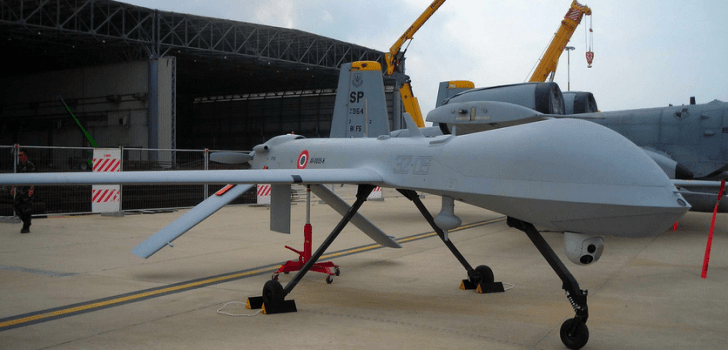The manufacturers of the next generation of military drone – nEUROn – say after five years of research and development, the craft has successfully passed the final string of stealth testing and will now be tested for full “operational use”.
Alenia Aermacchi, the Italian aerospace company that is heading the joint European Unmanned Combat Air Vehicle (UCAV) project, says the tests involved “12 highly sensitive sorties to verify the radar cross section (RCS) and infrared signature” and took place from the Decimomannu airbase in Sardinia. The craft will now undergo flight tests in Sweden, which will include the dropping of GPS-guided bombs.
The craft is a joint project of French, Swedish, Swiss, Italian and Greek aviation firms – Dassault Aviation, Saab, Finmeccanica-Alenia Aermacchi, RUAG, Airbus Defence and Space, and HAI.
An Alenia Aermacchi spokesman says the “sorties” flown out of Decimomannu were conducted at different flight profiles and altitudes against both ground and airborne radars. He says as well as passing the radar “stealth tests”, the nEUROn’s also successfully demonstrated the effectiveness of its smart integrated weapons bay (SWIB) system which “allows for the automatic detection and recognition of the target in stealth mode and enables the sending of an attack approval request to the ground station commander before the launching of weapons.”
He says the nEuro has previously completed 100 test flights in France from Istres airbase and once the 20 “sorties” in Sweden are over, all necessary flight-testing will have been completed.
Meanwhile, aviation experts say officials behind nEUROn’s British counterpart, the Taranis UCAV demonstration program, have been surprisingly quiet about developments. They say the last information released was at the Farnborough International airshow in July 2014.
A program spokesperson told reporters recently, “We are continuing to gather data and complete additional test points. Successful completion of this program proves the UK’s industrial capability to design and develop an unmanned, stealthy combat aircraft. This puts the UK in a strong position should we wish to enter into an international collaboration, by demonstrating a genuine UCAS design, development and manufacturing capability. We are in discussions with the Ministry of Defense about the next stage of testing for the aircraft, including any further flight trials.”
Stay Connected